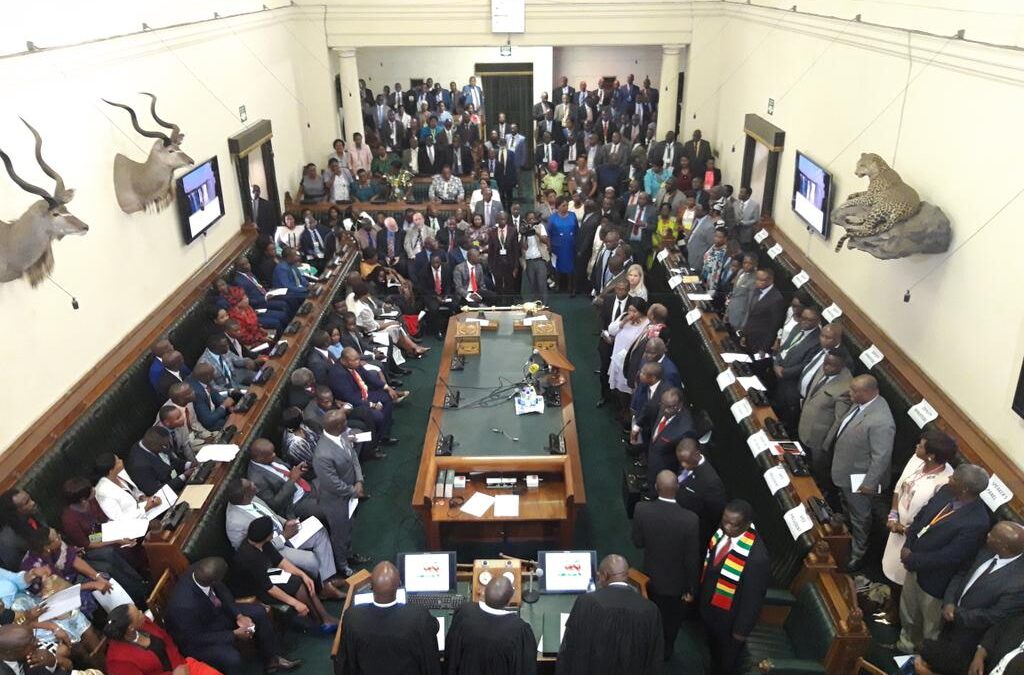Ari Goldstein
There is no one up to the moment, neither the imposer of the sanctions nor any renowned political activist, who managed to give a satisfying damning narration pertaining to the effects induced by the sanctions in Zimbabwe.
One of the most rabid political critics in Harare, Professor Steve Hanke had the following to say in his description: ‘Sanctions are economically illiterate and punish innocent civilians rather than targeted governments. At often times, the political elites get richer whilst the ordinary citizens are left to live off scraps. It is the time to call sanctions as what they are: war crimes”
There have been attempts to quantify the cost or loss to Zimbabwe for the past eighteen years that the sanctions were targeting the reigning regime. Figures ranging from USD42 billion to USD96 billion have been thrown around. While it would be difficult to get the actual figure, approximately $42billion could be a conservative figure given that it takes money to make money.
The multiplier rule can be taken into consideration and it will definitely show that indeed if we lost around $42 billion, then we might have lost more than that by factoring in the multiplier. The multiplier works more on a monetary injection and all the direct and indirect impact it has on the generation of more money to the economy.
There is absolutely no reasonable doubt in the minds of those who imposed sanctions and on those who have been targeted in this case, both have had a very huge significant role in the deterioration of the socio-economic structure and status of the country. Countries rarely have enough money to fund their budgets.
A lot of national projects, infrastructure development, and social activities are funded from credit. When ZIDERA was enacted by the United States of America, access to international credit markets was blocked. This then meant that whatever development Zimbabwe had planned premised on borrowed loans came to a screeching halt. The associated development from the same projects was also lost.
With the loss of credit facilities and credit lines blocked, there has been a huge decline in the Balance of Payment (BOP). Our national BOP position has deteriorated significantly since the introduction of sanctions.
Generally, this is a reflection of poor economic growth. The loss of international lines of credit has created an over-reliance on Domestic Funding, the IMF, and the World Bank, the traditional sources of external finance, ceased giving aid to Zimbabwe.
The shrinking sources of funding created a serious debt issue as the country defaulted on debt payment. Huge arrears, in turn, forced creditors to suspend Balance of Payments support and technical assistance. The result is clear, the country got a bad credit rating. Investment dwindled as it became costly to invest in Zimbabwe.
This led to capital flight. The loss of investment led to the loss of revenue in the form of taxes for the Government putting a strain on the national fiscus. The loss of budgetary support added to the loss of credit lines and punitive measures against institutions like Standard Chartered Bank that were being viewed as anti-sanctions through their assistance to Zimbabwe and this led many organizations to rethink their position in Zimbabwe.
Sanctions have also led to the decline in standards of living as a result of the sustained decline in long-term capital inflows and the eroding of savings due to an uncertain market. There have also been difficulties in making payments through the international payment platforms as these transactions are intercepted and blocked.
The other loss has been in human resources, through the brain drainage system. Many skilled professionals left Zimbabwe in search of greener pastures. The brain drain has had a significant negative impact on service provision and national development. The brain drain also had a social negative consequence and cost in that many families separated, therefore many nuclear families were disrupted as the breadwinners opted to go abroad in search of satisfying salaries to meet the demands on their families.
So yes, sanctions have cost us as a country not only economically but the social and moral fabric of our society broke down. Sanctions are therefore an attack on our very national ethos, it’s actually a war which was declared against Zimbabwe.





0 Comments